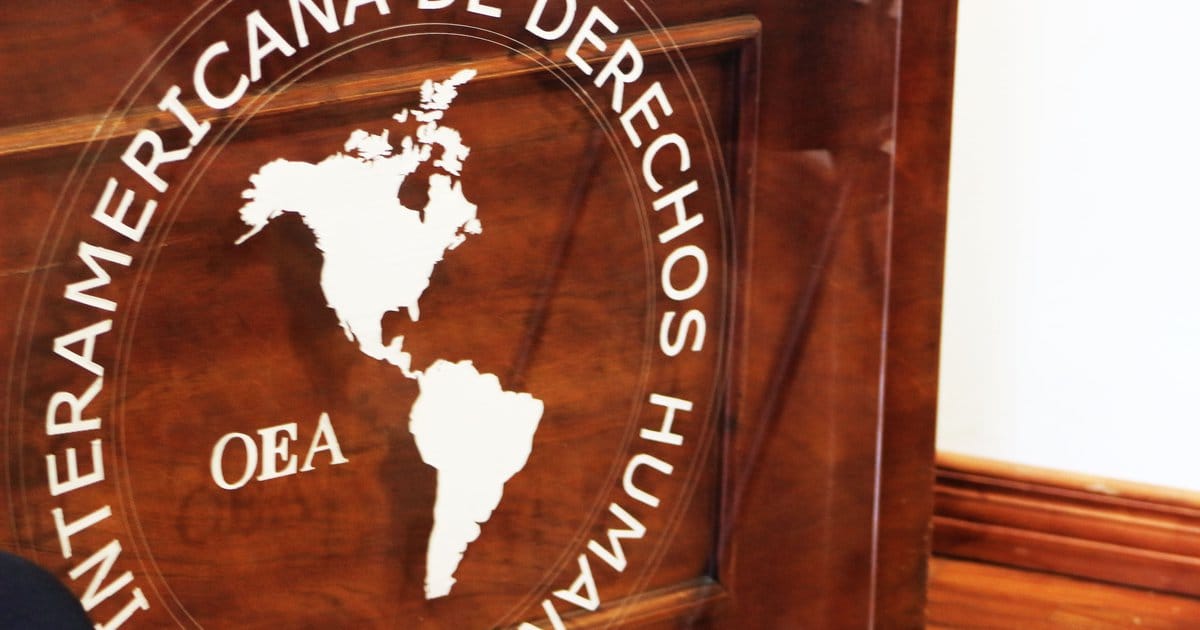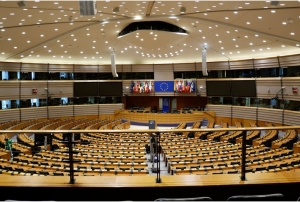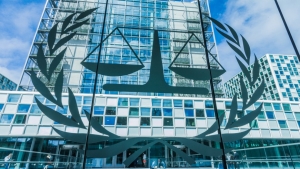The Inter-American Court’s Advisory Opinion 28/21, Formalism, and Populism
In June 2021, the Inter-American Court of Human Rights (IACtHR, or the Court) adopted Advisory Opinion 28/21 (OC 28, press release in English here), a request from Colombia on whether indefinite presidential reelections (which the Court defined as serving more than two consecutive terms, as per para. 38) were part of a human right to participate in political life (Article 23 ACHR), and whether a prohibition of indefinite reelections was rather a violation of human rights. In grappling with these questions, the Court touched upon sensitive matters of internal self-determination, and ventured further into the status of (a certain version of) democracy as part of the liberal international legal order than probably any other international adjudicatory body has to date.
This post discusses the IACtHR’s opinion, particularly in relation to the interpretive techniques it used, and with an eye on the question of the status of democracy in international law, alongside the right to self-determination. As the international community ponders the future of democratic government and self-determination in Afghanistan, OC 28 can offer some elements to consider the role of international institutions in attempting to leverage and support certain political systems using the language of rights.
I argue that, despite its best intentions, the Court’s liberal commitment to a certain version of democracy is somewhat paternalistic, but also in line with the role of international human rights in offering escape routes to individuals and groups against the fickle politics of the territorial state. In attempting to strike a middle ground between human rights’ counter-majoritarian instincts and the IACtHR’s commitment to institutional stability in the hemisphere, the Court opted to protect its own version of institutions, and attempt to influence domestic legal and political process from the outside, well in line with its practice. In doing so, however, the IACtHR missed an opportunity to make significant inroads into the meaning of self-determination in practice.
The Court, using its well-established jurisprudence on the matter, rewrote the questions posed by Colombia. The Court answered the following questions:
a) Is unlimited presidential reelection a human right protected by the American Convention on Human Rights? In this sense, 2) Do regulations that limit or prohibit presidential reelection violate Article 23 of the American Convention on Human Rights, either by restricting the political rights of the individual seeking to be reelected, or by restricting the political rights of voters? Or, on the contrary, 3) Is limiting or prohibiting presidential reelection a restriction of political rights that is consistent with the principles of legality, necessity and proportionality, in accordance with the case law of the Inter-American Court of Human Rights in the matter?
b) Is unlimited presidential reelection compatible with representative democracy in the InterAmerican Human Rights Protection System?
Before directly answering these questions, and after clearing matters of admissibility, the IACtHR embarked on a discussion of the relationship between democracy, human rights, and the rule of law; and an exposition of what it sees as the basic principles of representative democracy. The latter in particular is well in line with the Court’s willing incursions into domestic institutional design, which I have co-documented and -discussed elsewhere.
In attempting to answer the questions before it, the Court engaged extensively with the Permanent Secretariat of the Ibero-American Judicial Summit, particularly in seeking detailed information on domestic electoral law systems, and domestic judicial jurisprudence on elections and political rights (OC 28, para. 11). This grounding of the Court’s sources substantively in domestic legal practice, and institutionally on the work of a body that brings together domestic judicial authorities in direct conversation with the IACtHR, is important for the Court’s legitimacy. This double importance is particularly heightened in a context that is traditionally squarely within the state’s domaine réservé and self-determination like electoral systems.
In expanding on the role of democracy and rule of law in relation to human rights, the Court explains that the right to vote is vital for the existence of a democracy (para. 61), and that it requires elections performed periodically, “authentically”, by universal suffrage, and secret vote (para. 63). This right should guarantee access to direct participation in the design, development, and execution of public policies (para. 64).
The Court uses this finding to move on to the basic principles of a representative democracy, and forcefully indicates that political rights only make sense when they take into account international human rights law’s counter-majoritarian instincts. Specifically, the Court said that:
“the only way in which human rights can have true normative effect is through recognizing that they cannot be subject to the criterion of majorities, since precisely these rights have been conceived as limitations to the majoritarian principle. This Court has underscored that the protection of human rights sets an absolute limit to the rule of majorities, namely, to the sphere of what “can be decided” by majorities in democratic contexts.” (para. 70)
This recognition by the IACtHR of human rights law’s counter-majoritarian instincts is important to allow it to navigate and mitigate its support for democracy as a core principle of international law, and it also opens room for the Court to further its mandate in the supervision of the unfolding of democratic processes. In other words, this recognition allows the Court to simultaneously protect its legitimacy and expand its mandate on matters of domestic institutional design. In this respect, the Court embraces “political pluralism” (para. 77), read to mean that there is an obligation to avoid that a single person stays in power for too long (para. 75). The perpetuation of a single person in power can also blur the separation of powers over time, according to the IACtHR (paras. 80-81), which is yet another inroad by the Court on matters of domestic institutional design.
To support these statements, the Court relies on sources as varied as the Inter-American Democratic Charter, as well as the domestic law (including the constitutions) of all states in Latin America. This latter reliance on domestic sources, known as consensus interpretation, is a key method for the Court to seek and leverage its own legitimacy, and it is important that the IACtHR has put so much emphasis on these domestic legal sources in this particular context. The Court’s ventures into this interpretive tool in OC 28 go a step further than its traditional use of the technique, which I have argued elsewhere is sometimes ad hoc and aimed at supporting a result that could be gleaned from other sources. Here, consensus interpretation is both more thorough in the systematization of domestic legal responses, and more central to the IACtHR’s reasoning, which could herald a new phase in the Court’s indigenization of this tool imported from the European Court of Human Rights.
Against the background of domestic law, wherein most countries in the Americas prohibit indefinite reelections (para. 90), the Court moves on to answer the two central questions. The first question is about the existence of an affirmative right to be reelected indefinitely. In seeking an answer to this question, the Court surveys the same domestic legal sources, as well as does a close reading of the text of the American Convention. It finds that, as a matter of treaty (para. 96), custom (para. 99), or general principles of law (para. 99), there is no affirmative right to be reelected.
The IACtHR then moves on to answer the negative question: in the absence of an affirmative right, whether it is permissible, as a matter of human rights law, to prohibit indefinite reelections. In doing so, the Court engages in a detailed analysis of the language of Article 23, focusing not only on the narrow provision on limitations (Article 23.2), but also on the broader language on the scope of the right (Article 23.1), finding that, despite the limited number of permissible grounds for a limitation to the right to be elected, the state party has positive obligations to create an electoral system that protects not only the rights of individual candidates, but society as a whole (paras. 104-113), in line with the Court’s findings on the basic principles of representative democracy and its directives on institutional design.
Lastly, the Court gets to the final question before it, whether indefinite reelections are compatible with international human rights law. The answer is a resounding “no”, on the basis of the principles articulated previously. The Court in particular is concerned about populism as a mechanism of erosion of human rights, a topic that has animated many international lawyers recently (myself and one of my co-editors in this blog included). The Court’s language on the issue deserves quoting in full:
“as a general rule, the risks imposed by indefinite presidential reelections to democracy in the region have come to fruition. Therefore, this Court concludes that to allow indefinite presidential reelections is an obstacle to other political forces separate from the person in charge of the Presidency, preventing these forces from gaining popular support and being elected, affecting separation of powers and, in general, weakening democracy’s functioning. This Court warns that the greatest current risk to democracies in the region is not abrupt ruptures of the constitutional order, but gradual erosions of the democratic safeguards that can lead to an authoritarian regime, even if elected through popular elections. Therefore, democratic safeguards should provide for the prohibition of indefinite presidential elections.” (para. 145)
This fear of the rise of populism, while only articulated at the end of OC 28, seems to animate much of the Court’s opinion. Nonetheless, two judges voted against the majority, Judges Pazmiño and Zaffaroni. Judge Pazmiño disagreed with the Court on the basis that, in his view, the Court did not respect its own jurisprudence, and was not sufficiently precise technically in applying international law. As a result, he suggested, the Court failed to also account for and render effective the basic principle of self-determination. Judge Zaffaroni shares the position in relation to self-determination, but, in support of his view, he alleges that the Court was too narrowly technical and formalistic and did not take into account the region’s complicated history and relationship with democracy, and how often leaders in power for long periods of time have been instrumental for the development and advancement of certain countries in the region, bringing much-needed stability.
Caught between accusations of being too formalistic or not formalistic enough, it seems the Court has struck a middle ground, at least between its two dissenters, even if at the expense of their shared view of self-determination. The Court’s failure to engage with self-determination can be read, I suggest, as it being afraid of unleashing a principle that would do away with the IACtHR’s carefully curated institutional design aspirations. Nevertheless, I believe the Court should have engaged with this principle more fully, even if just to flesh out what it means in practice when human rights are considered. Self-determination is often read as bringing about a brand new order, but it can be also part of more carefully thought-out ventures, measured against yardsticks such as human rights, and the Court missed an opportunity to make that case.
OC 28 therefore reinforces international law’s commitment to democracy, which continues to animate spirited debates among international law scholars. It can be seen as reinvigorating a debate which, Akbar Rasulov has argued, has been (unfairly) treated as an utopian detour and a “lapse of conceptual clarity and professional rigour”. It can make an important contribution to reimagining the role and responsibility of international law scholars and organs in reinforcing democracy, particularly in the Americas, a hemisphere where populism is on the rise, often at the expense of basic institutional safeguards that seek to protect us, fundamentally, from ourselves. Self-determination is a terrific goal, but not when at the expense of the emancipation it should be promoting. Whether human rights is the right language to articulate that emancipation is a question for another day, but at least it is one (but not the only) valuable yardstick against which to measure whether self-determination is doing its job.
-

Professor Titular da Faculdade de Direito e Justiça da UNSW Sydney, e um dos editores desse blog.





